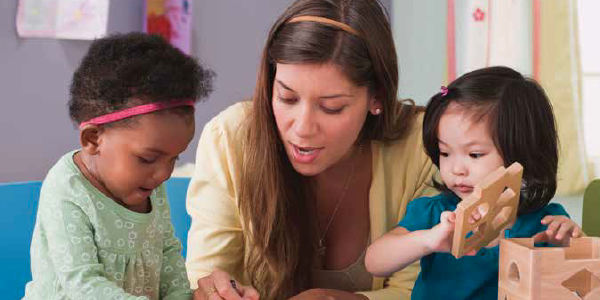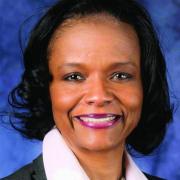From Our President. Passing the Baton . . . Staying in the Race

You are here
Today, with rapid advances in brain research over the past two decades, we know a great deal about child development and learning; yet translating that knowledge into effective, practical strategies that close opportunity and achievement gaps among children remains a challenge (as reflected in several articles in this issue of Young Children). We know that the competencies teachers bring to their work with young children matter; yet growing our capacity to produce more effective early educators, such that every child has a well-prepared teacher, will take time. We know that children’s experiences in centers and programs are only part of the story, and that stable housing, affordable health care, nutritious food, and safe communities are also important for enabling children to realize their full potential; yet creating policy solutions that serve all under-resourced families and are easy to navigate is a struggle. We know there are no simple solutions; yet resisting the pressure to search for them requires resolve. At times, reflecting on the current state of affairs can leave us feeling frustrated that we are not progressing quickly enough.
Staying the course, despite our frustrations, requires courage. In a short but profound essay on courage, the poet David Whyte wrote in Consolations: The Solace, Nourishment and Underlying Meaning of Everyday Words,
Courage is the measure of our heartfelt participation with life, with another, with a community, a work; a future. To be courageous is not necessarily to go anywhere or do anything except to make conscious those things we already feel deeply and then to live through the unending vulnerabilities of those consequences.
The word courage comes to mind when I think about Power to the Profession and the work that NAEYC and 14 other national organizations on the taskforce are leading, with the participation of another 35 stakeholders. This initiative represents a serious effort to co-create, through active participation among organizations and stakeholders around the country, a coherent, compelling explanation of who we, as early childhood professionals, are, what we do, why it matters, and why it should be supported through public and private investments. The work has the potential to positively affect young children and early education professionals—if we have the courage to work through the sensitive issues that surface in the process. As we develop Power to the Profession, we will rise to the dual challenges of inspiring the next generation of early educators to embrace the profession and persuading the next generation of economic and political leaders that our profession has immense value to our society.
My belief in Power to the Profession—my courage—comes from all that I have seen NAEYC succeed in accomplishing over the past six years. Two years ago, I completed my term as an elected, at-large NAEYC Governing Board member. I thank the members who voted for me, believing I had something to offer that would benefit the ongoing work of the association, and I especially thank Jerlean Daniel for her active encouragement when I was considering board service. During those four years, the board’s work focused on concluding NAEYC’s National Dialogue; hiring a new chief executive officer; completing a strategic planning process that refined our mission, vision, and direction; and aligning our bylaws, policies, and procedures with the new direction, after it was embraced by members and affiliates around the country. This body of work set the stage for NAEYC’s continued evolution as the leading authority on young children and the professionals who devote themselves to children’s early education and care.
With the untimely passing of our president, Deborah Cassidy, the need arose for a return to service, and for the past two years it has been an honor and privilege for me to serve as president of NAEYC’s Governing Board. During that time, the association has succeeded in restructuring its affiliate components to achieve greater success at the national, state, and local levels when it comes to advancing an agenda for young children and the professionals who educate and support them. NAEYC membership has been revamped to create more value for members and to recruit and attract a new generation of early childhood professionals. A streamlined approach to Accreditation of Early Learning Programs is in the final stages of testing, under the direction of the Council for NAEYC Accreditation, with the goal of supporting more programs as they move through this rigorous process. The Governing Board has prioritized revising and updating position statements focused on developmentally appropriate practice and affirming and promoting equity and diversity within early childhood programs. Together we have accomplished much, but there is more work to do.
As I transition from my role as Governing Board president, I will still stand with NAEYC and our profession to “live through the unending vulnerabilities” that come with being committed to all young children. Too much is at stake to sit on the sidelines and hope for the best. Millions of young children and their families are counting on us to provide the high-quality early learning opportunities that children need to grow and thrive. Together, we have the ability to build the future we deeply desire for children and for the professionals who work on their behalf. I look forward to continuing this next leg of our journey, and I thank you for giving me the opportunity to serve.
Photographs: © Getty Images
Tammy L. Mann is president of NAEYC's Governing Board, as well as president and CEO of The Campagna Center. Previously, Dr. Mann held senior executive positions at the Frederick D. Patterson Research Institute at UNCF and ZERO TO THREE. She has worked in the nonprofit sector in agencies devoted to improving outcomes for young children and their families for over 20 years.
